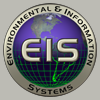
|
Stuart Maclean Principal Engineer stuart@apl.washington.edu Phone 206-543-1403 |
Research Interests
Software Engineering
Biosketch
Dr. Maclean is interested in most areas of software engineering, including language paradigms and designs, development tools, through to distributed systems and protocols.
Stuart came to the University of Washington in 1998, designing user information systems for the traffic and transportation arenas. He joined the Applied Physics Laboratory in 2004, and is currently involved in the visualization and verification of meteorological data sets.
Department Affiliation
 |
Environmental & Information Systems |
Education
B.Sc. Mathematics, University of Southampton, 1988
M.Sc. Operational Research, University of Southampton, 1990
Ph.D. Computer Science, University of Southampton, 1996
|
Publications |
2000-present and while at APL-UW |
An application programming interface (API) for API hookers: Taking a closer look at malware Maclean, S., "An application programming interface (API) for API hookers: Taking a closer look at malware," Proc., 4th Annual Open Source Digital Forensics Conference, 5 November, Chantilly, VA, 25 pp. |
More Info |
5 Nov 2013 |
|||||||
|
A method for automated hook function generation is described. Hook functions are used by programs to instrument and monitor other programs. User-space hooking is employed to study malicious software. The malware is executed in a sandbox environment and its actions recorded as it calls functions from system libraries. The method as presented solves, at least partially, the problem of writing individual hook functions for the hundreds or possibly thousands of entry points into a system library, e.g. the Win32 API. |
|||||||||
RCOOS and ocean information tools for decision makers Jones, D., and S. Maclean, "RCOOS and ocean information tools for decision makers," Proc., MTS/IEEE Oceans 2007 Conference, 1-5 October, Vancouver, B.C., doi:10.1109/OCEANS.2007.4449207 (2007). |
More Info |
29 Sep 2007 |
|||||||
|
The nascent Regional Coastal Ocean Observing Systems (RCOOS) are expected to provide enhanced awareness of the coastal environment through the deployment of new sensors and the communication of user-driven information products. Successful utilization of RCOOS information will require close interaction with the intended user communities. The planned information systems and decision aids can benefit from Human Factors research. With the adoption of human-centered design principles and the employment of web-based technologies, RCOOS information can be quickly transmitted to those who need it, and visualized in ways that help users make critical decisions. We describe three web- based decision tools that identify the opportunities of this approach. |
|||||||||




